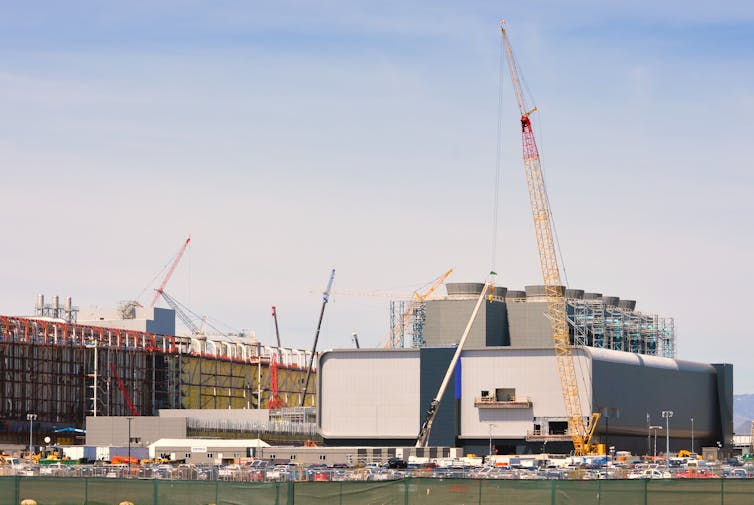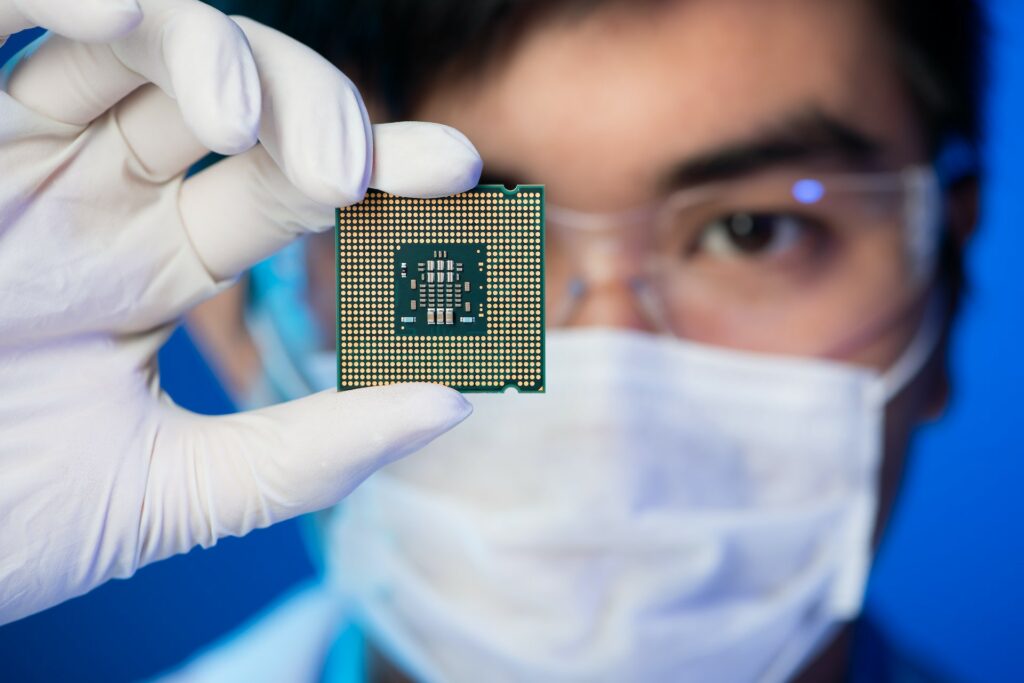HiSilicon and Semiconductor Manufacturing International Corporation (SMIC), China's national champions in the design and manufacturing of computer chips, or semiconductors, are making headlines in Washington.
SMIC was long considered overdue. Since its founding in 2000, it has remained far from the technological frontier, despite receiving billions of dollars in aid from the Chinese government. But that perception, and the confidence it has given the United States, is changing.
advertisement
Continue reading below
In August 2023, Huawei released the high-end smartphone “Huawei Mate 60.” According to the Center for Strategic and International Studies, an American think tank based in Washington, D.C., this move comes as its onboard chips showed China's HiSilicon self-sufficiency in semiconductor design and SMIC's manufacturing capabilities are catching up. The announcement “surprised the United States,” he said. Amazing pace.
Recent news that Huawei and SMIC plan to mass produce so-called 5-nanometer processor chips at a new production facility in Shanghai has only fueled fears about the companies' next-generation capability leaps. Although these chips are a generation behind today's most advanced chips, they show that China's efforts to develop more advanced chips are on track despite U.S. export restrictions.
The United States has long maintained a clear position at the forefront of chip design and has ensured that we are a close ally supplying the manufacturing of cutting-edge chips. But now it faces formidable competition from China, whose technological advances will have significant economic, geopolitical, and security implications.
Semiconductors are big business
For decades, chip manufacturers have aimed to create more compact products. Smaller transistors significantly improve microchip performance by reducing energy consumption and increasing processing speed.
Moore's law (the expectation that the number of transistors on a microchip will double every two years) still holds true for chips designed in the Netherlands and the United States and manufactured in South Korea and Taiwan. Therefore, Chinese technology is many years behind. The world's frontier is moving to 3-nanometer chips, but Huawei's homegrown chips are 7-nanometers.
Maintaining this distance is important for economic and safety reasons. Semiconductors are the backbone of the modern economy. These are important for communications, defense, and artificial intelligence.
The reason the United States is promoting “American-made'' semiconductors is related to this systemic importance. The chip shortage is wreaking havoc on global production, as chips supply many of the products that define modern life.
Today's military forces are directly dependent on chips. In fact, according to the Center for Strategic and International Studies, “all major U.S. defense systems and platforms rely on semiconductors.”
The prospect of relying on Chinese chips and backdoors, Trojan horses, and supply control is unacceptable to the U.S. government and its allies.
Suppression of China's chip industry
Since the 1980s, the United States has helped South Korea and Taiwan establish and maintain monopolies in chip manufacturing and distribution. But the United States has recently sought to protect its technological superiority and independence by strengthening its own manufacturing capabilities.
Through massive industrial policy, billions of dollars are being funneled into U.S. chip manufacturing facilities, including a multibillion-dollar factory in Arizona.

Photos from around the world/Shutterstock
The second major initiative is exclusion. The Committee on Foreign Investment in the United States has reviewed numerous investment and acquisition transactions, ultimately blocking some in the name of U.S. national security. This includes a high-profile case in 2018 in which Broadcom tried to buy Qualcomm because of its ties to China.
In 2023, the U.S. government issued an executive order banning the export of advanced semiconductor manufacturing equipment and technology to China. The United States aims to block China's access to critical components by imposing strict export controls.
advertisement
Continue reading below
The hypothesis is that HiSilicon and SMIC will continue to stumble as they attempt to become self-sufficient on the frontier. The US government called on friendly countries to take a unified position on eliminating chip exports to China. In particular, leading Dutch designer ASML has stopped shipping high-tech chips to China, citing US policy.
The Washington government is also restricting the flow of talent into China's semiconductor industry. Regulations restricting the movement of talent are motivated by the observation that even the “godfathers” of semiconductor manufacturing in Japan, South Korea and Taiwan had worked for, and had their know-how and connections with, Chinese chipmakers.
This, and repeated headlines about the need for more semiconductor talent in the United States, is spurring a crackdown on the drain on American talent.
Finally, the US government has specifically targeted China's national champion companies Huawei and SMIC. In 2019, it banned the sale and import of equipment from Huawei, and since 2020 it has imposed sanctions on SMIC.
What's the problem?
The “chip war” is about economic and security advantages. Beijing's expansion into the technological frontier would mean economic boom for China and economic ruin for the United States. And that would have significant security implications.
Economically, China's rise as a semiconductor giant could disrupt existing supply chains and reshape the division of labor and human capital allocation in the global electronics industry. From a security perspective, China's rise has increased the risk that vulnerabilities in Chinese chips could be exploited to compromise critical infrastructure or carry out cyber espionage.
China becoming self-sufficient in semiconductor design and manufacturing would also weaken Taiwan's “silicon shield.” Taiwan's established status as a major semiconductor manufacturer has so far deterred China from attacking the island by force.
China is improving its semiconductor capabilities. The economic, geopolitical, and security implications will be profound and far-reaching. Given the risks facing both superpowers, we can be confident that Washington will not simply acquiesce, and Beijing will not give up either.![]()
Robin Klingler-Vidra He is Deputy Dean and Associate Professor of Global Engagement, Entrepreneurship and Sustainability at King's College London. Stephen High is an Affiliate Fellow at King's Institute for Artificial Intelligence, King's College London, King's College London.
This article is republished from The Conversation under a Creative Commons license. Read the original article.

